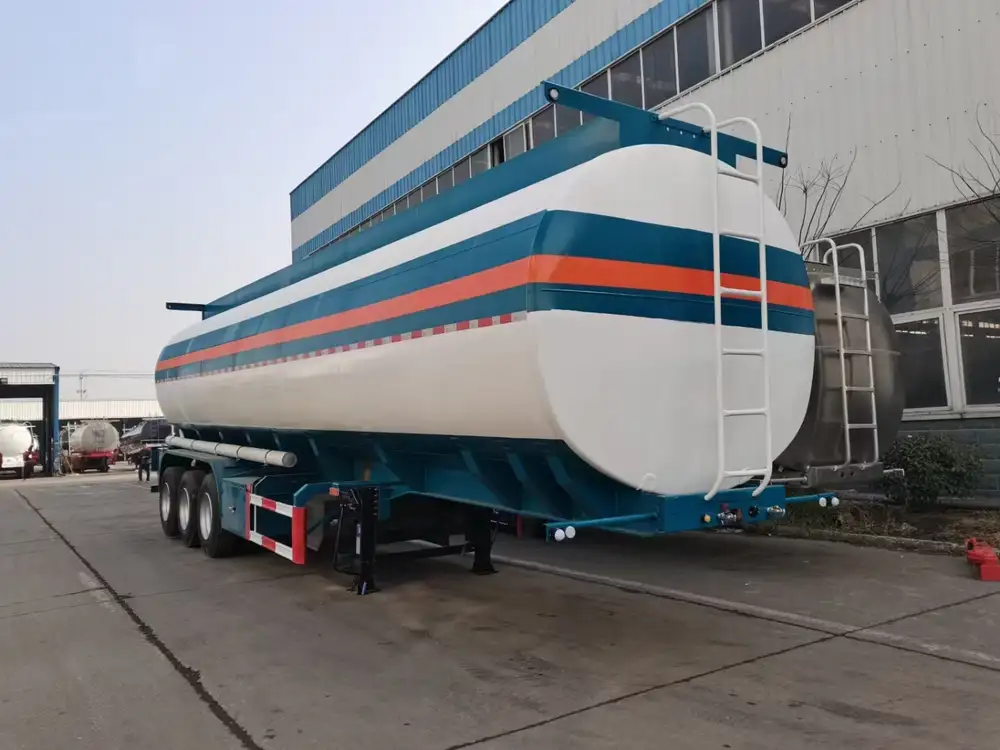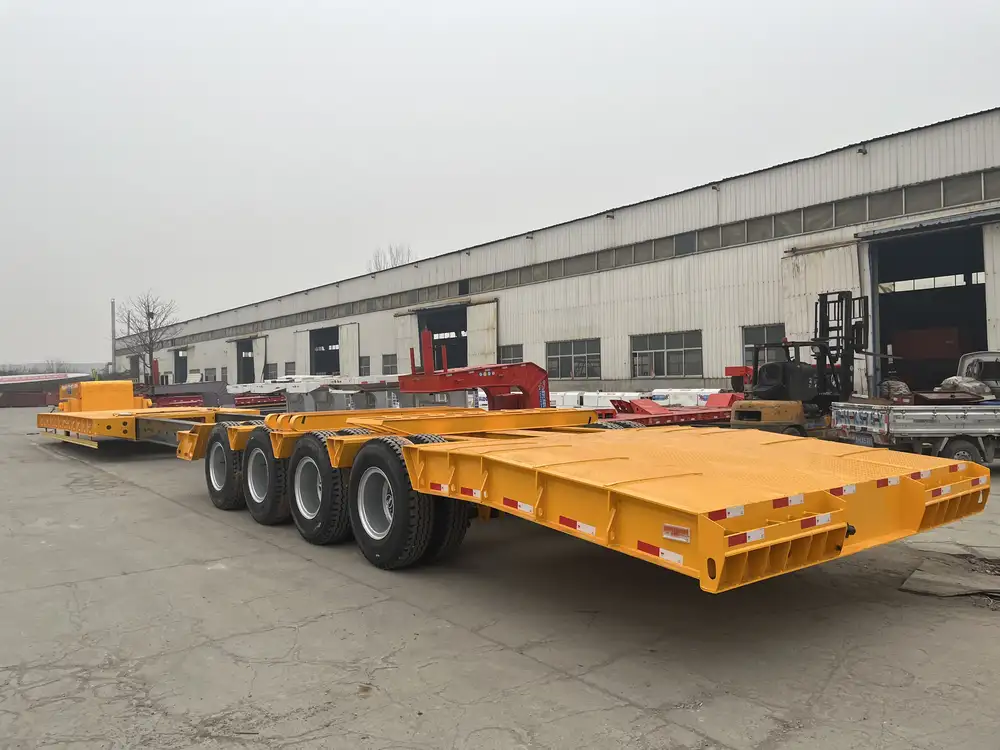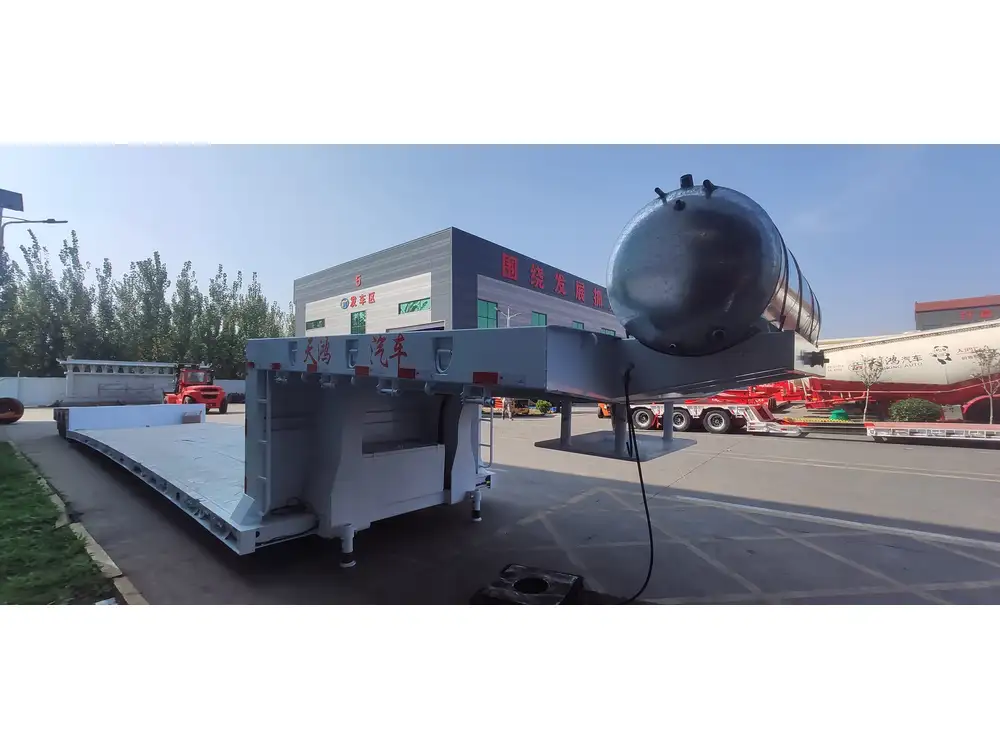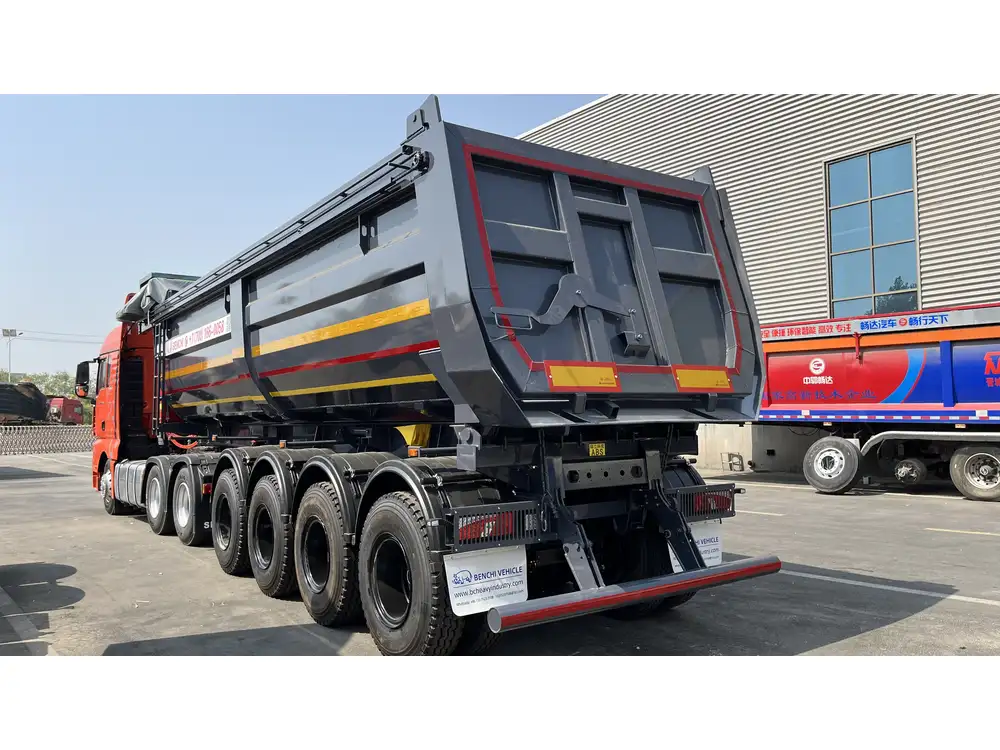Maintaining a semi-trailer involves more than just ensuring the structure is intact and the tires are adequately inflated. Often overlooked in routine maintenance is the effective disposal of black water—a critical aspect for any manufacturer, operator, or user of trailers. This article provides comprehensive guidance on where to dump trailer black water, addressing common inquiries, compliance requirements, and environmentally responsible practices.
Understanding Black Water in Trailers
What is Black Water?
Black water refers to wastewater that contains human fecal matter, urine, and any other materials disposed of via toilets in trailers. It is crucial to handle this waste responsibly as it poses significant health risks and environmental concerns if not disposed of properly.

The Importance of Proper Disposal
Neglecting proper disposal methods can lead to severe consequences:
- Health Risks: Exposure to pathogens can cause illness.
- Environmental Damage: Improper disposal can contaminate groundwater and local ecosystems.
- Legal Consequences: Failing to adhere to local regulations can result in fines and penalties.
Legal Regulations Surrounding Waste Disposal
Each jurisdiction has its regulations governing the disposal of black water. Operators should familiarize themselves with the laws specific to their locality, including:
- State codes governing waste disposal.
- Local health department regulations.
- Environmental protection laws.
Finding Approved Dumping Locations

Types of Facilities for Black Water Disposal
When looking for places to dump trailer black water, several facility types can accommodate such needs. It is essential to know these options to comply with regulations and maintain good practices.
| Facility Type | Description | Advantages | Disadvantages |
|---|---|---|---|
| RV Dump Stations | Facilities designed specifically for RVs and trailers to dispose of black water. | Easily accessible, often free or low-cost. | May not be available in all areas. |
| Wastewater Treatment Plants | Municipal facilities where waste is treated before being released into the environment. | Compliant with environmental regulations. | May require permits or fees. |
| Sanitation Disposal Services | Private companies that specialize in waste disposal for trailers and RVs. | Provides pick-up services, convenient. | Costlier than other options. |
| Truck Stops | Many interstate truck stops have disposal facilities for truckers and trailer users. | Convenient locations along major travel routes. | Fees can vary widely. |
How to Locate Dump Stations
Mobile Apps and Websites
- Use RV-specific apps such as Campendium or AllStays to find nearby dump stations.
- Websites like Sanidumps.com provide comprehensive lists of dumping locations.
Local Campgrounds or RV Parks
- Inquire with local campgrounds or RV parks; they often have facilities or can direct you to nearby dump stations.
Community Boards
- Local bulletin boards or community centers might have information on approved disposal locations.
Factors to Consider When Choosing a Dumping Location
- Accessibility: Ensure the location is easy to access, particularly with larger trailers.
- Hours of Operation: Some facilities may not be open 24/7. Check before heading out.
- Fees: Some locations may charge for the disposal; inquire in advance.
- Waste Acceptance Policy: Confirm they accept trailer black water since some facilities might restrict types of waste.

Best Practices for Black Water Disposal
Preparing for Disposal
Before heading to your chosen disposal location, take the following preparatory steps:
- Inspect the Tank: Check for leaks or damages to avoid accidental spills during transport.
- Seal Connections: Ensure all connections are tightly sealed to prevent leaks.
- Use Protective Equipment: Wear gloves and masks to protect from potential pathogens during tank preparation.
The Disposal Process
Arrive at the Dump Station:
- Park your trailer close to the dump station to minimize hose length.
Follow Site Instructions:
- Read and adhere to any posted instructions or guidelines specific to the facility.
Connect the Hose:
- Attach the waste hose securely to the trailer’s disposal port and the dump’s inlet.
Empty the Tank:
- Open the valve gradually, allowing the black water to flow into the dump station tank. Monitor for any leaks or issues.
Flush the System:
- After emptying the tank, it is advisable to flush the hoses to prevent residue build-up.
Dispose of Rinse Water:
- Use a designated rinse area to dispose of any leftover rinse water in accordance with local regulations.

Post-Disposal Check
After disposing of black water, do not forget to:
- Inspect the area for any spills or messes—clean up if needed.
- Wash your hands thoroughly and dispose of gloves appropriately.
- Perform a maintenance check on your trailer’s sewage system.
Environmental Considerations
Eco-Friendly Practices for Black Water Disposal
Practicing environmentally conscious disposal methods is essential for preserving our ecosystems. Here are some actions to take:
- Use Biodegradable Products: Utilize eco-friendly toilet chemicals and biodegradable toilet paper to minimize environmental impact.
- Educate Others: Share knowledge about responsible disposal practices with fellow trailer users to promote a community of respect towards nature.
- Report Illegal Dumping: If you encounter illegal dumping sites, report these to local authorities to help prevent environmental degradation.

The Role of Treatment Plants
Technological advancements have improved wastewater treatment methods, allowing contaminants to be effectively broken down before water is released back into the environment. Knowing how wastewater treatment plants operate can help emphasize the importance of using these facilities.
Troubleshooting Common Issues
Challenges Faced During Disposal
Clogs in the Systems:
- Solution: Consider using a tank cleaning solution regularly, and inspect hoses for damages or buildup.
Odor Problems:
- Solution: Utilize deodorizing agents specifically designed for trailer wastewater systems. Regularly clean and maintain the tank.
Slow Drainage:
- Solution: Evaluate the position of hoses and tanks, and check for obstructions. Flush with a tank cleaner.

Frequently Asked Questions (FAQs)
1. How often should black water be dumped?
The frequency of disposal largely depends on usage patterns. As a general rule, you might want to dump once a week or every three to five days, depending on the number of users and your trailer size.
2. Can I dump black water in a regular toilet?
No, dumping black water in a regular toilet is discouraged unless the authorities allow it, as it can lead to clogs and sewage backups.
3. What to do if I can’t find a dumping location?
If you’re in urgent need, contact a local sanitation service for advice; however, do not attempt to dispose of waste improperly.
4. Are there special rules for dumping in national parks?
Yes, many national parks have specific regulations regarding dumping. It is best to consult park authorities to get accurate information.
Conclusion
Properly disposing of trailer black water is crucial for health, environmental integrity, and legal compliance. By familiarizing ourselves with the available facilities, following best practices, and continually educating ourselves and others, we can contribute to a healthier ecosystem and ensure the sustainability of our operations. Always be proactive, responsible, and educate fellow users about the importance of proper black water disposal to ensure a clean, healthy environment for everyone.



